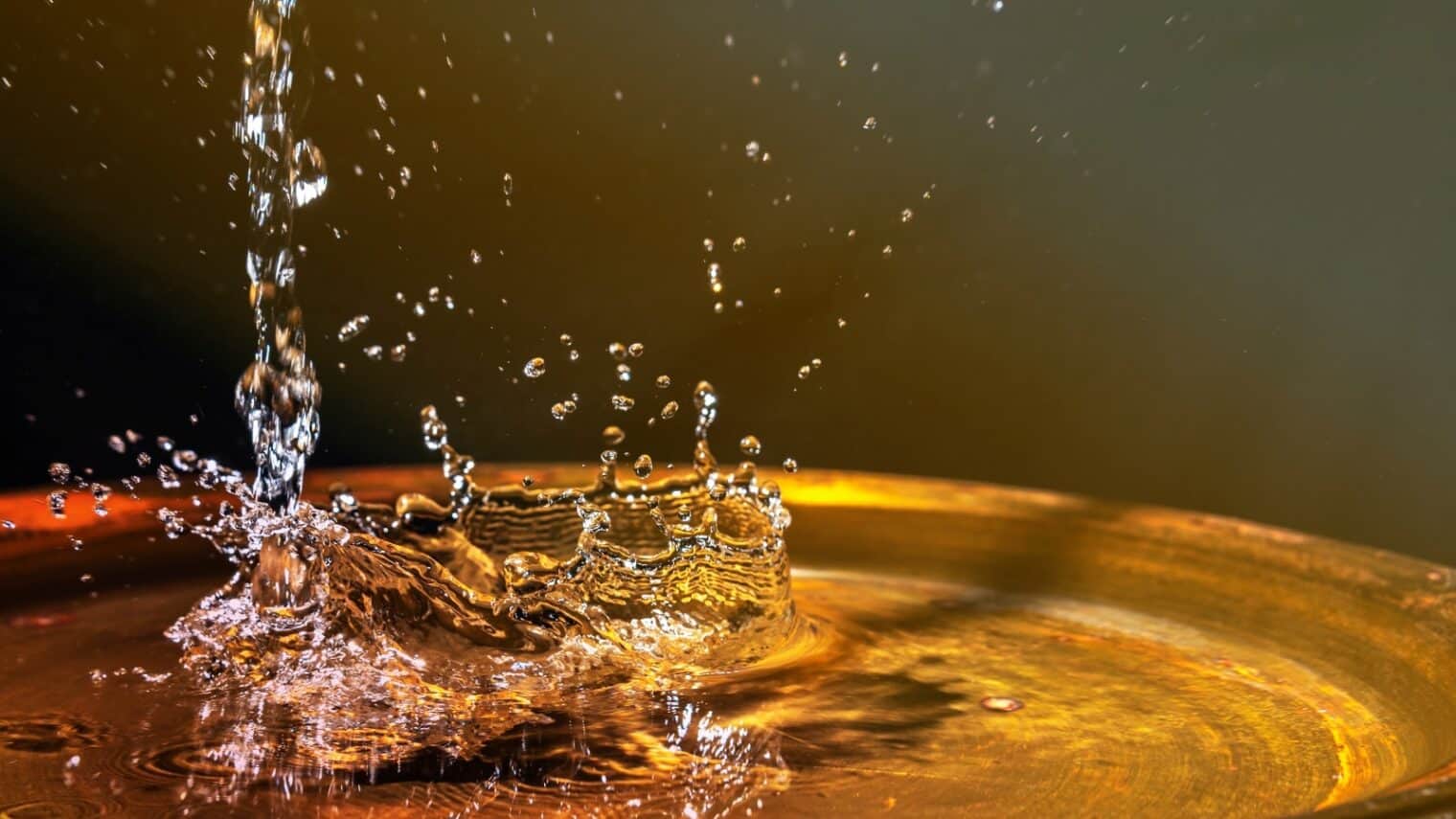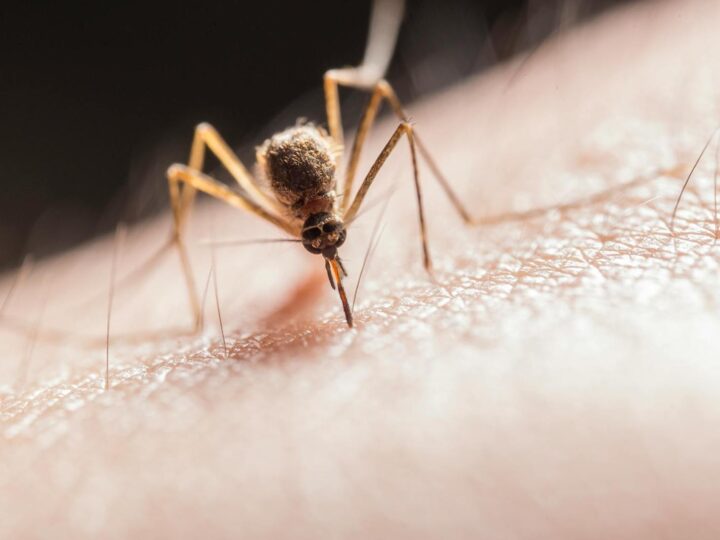Former American star athlete Riley Gaines recently revealed that she didn’t have eyebrows during all her years as a competitive swimmer. According to Gaines, her eyebrows “fell off” due to prolonged exposure to chlorine and only grew back once she had stopped competing.
The US Centers for Disease Control and Prevention says that exposure to low levels of chlorine can result in mild nose, throat and eye irritation. At higher levels, however, it can cause coughing, changes in breathing rate, and even lung damage.
Chlorine was utilized as a chemical weapon during World War I. So why is it still being used as a common pool sanitizer across the globe? Well, because there simply hasn’t been an optimal alternative… until now.
Here comes Coppter Water Technologies. The Israeli company is based in the Negev, and – though it is early days yet – it hopes to offer a non-toxic and cost-efficient solution for disinfecting wastewater, water reservoirs, swimming pools and hot tubs.
The main ingredient in this sterilizing solution is a monovalent copper ion with antimicrobial properties.
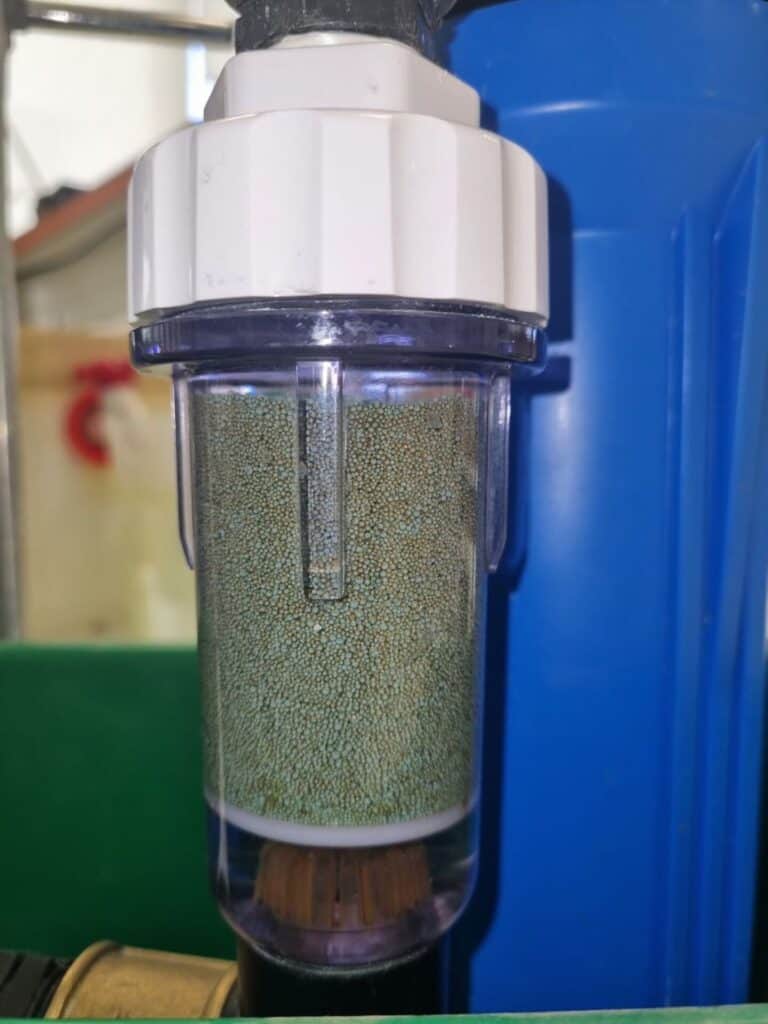
“It’s like swimming in a river — no stinging, no gas clouds,” is how Coppter Water cofounder Magal Saphier describes the sensation of water cleaned with the Coppter Water solution.
Finding the right ratio
Until now, one of the problems with utilizing the chemical element as a disinfectant was finding ways to increase the ratio between the potent unstable monovalent copper ions and the stable low-active divalent copper ions.
“We knew that when copper has an oxidation state of +1, it is an active ingredient against germs. The problem was that copper with +1 oxidation state is highly concentrated and unsafe for people to use,” Yuval Kupitz, the CEO of Coppter Water, tells ISRAEL21c.
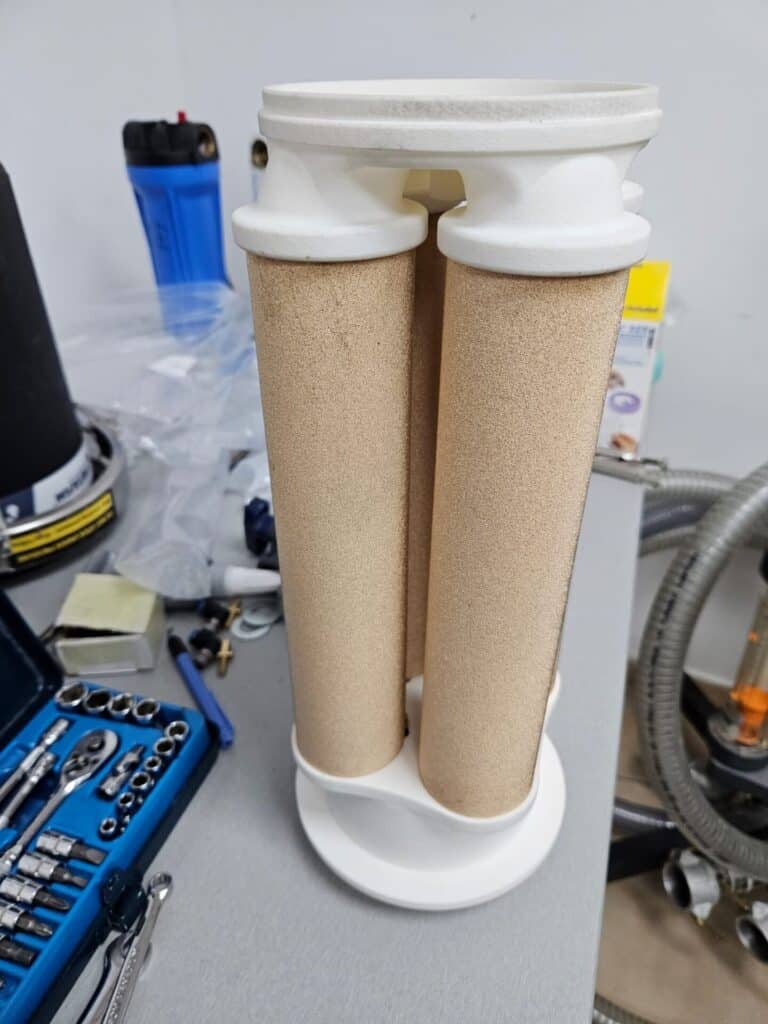
Saphier, principal investigator at Shamoon College of Engineering (SCE) in Beersheva, spent 20 years of his career researching copper. In 2011, it led him to the discovery of the formula that is now the basis for Coppter’s one-of-a-kind disinfection method.
“What we’ve succeeded in doing was lowering the concentration [of +1 oxidation state copper] to levels where it is not harmful for people, animals or plants,” adds Kupitz.
Proof of concept
Saphier cofounded the company in 2022 with his spouse, Oshra, a senior lecturer in chemical engineering at SCE, after years of research aiming to prove their theory on monovalent copper.
The company so far has raised over $500,000 and employs five people.
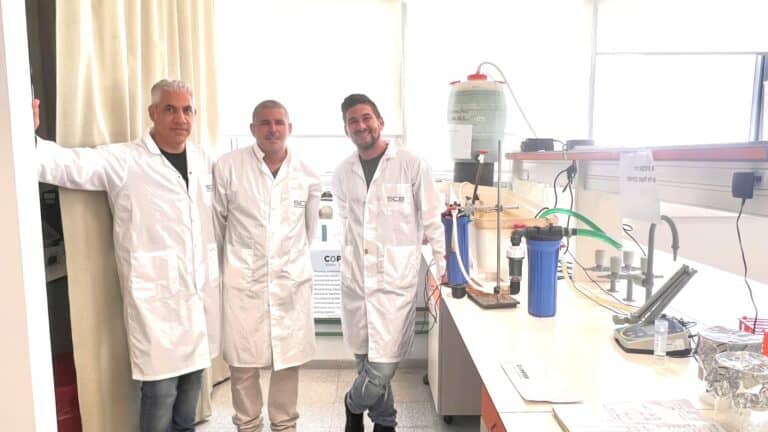
Coppter Water is planning to build a proof-of-concept (POC) pilot for a medium wastewater treatment plant and beta sites for the disinfection of swimming pools and Jacuzzis if the upcoming investment round goes as planned.
One of the investors is the InNegev technology incubator in southern Israel, where Coppter’s headquarters are located. Most of the research, however, is done by the Saphier couple in their lab at SCE.
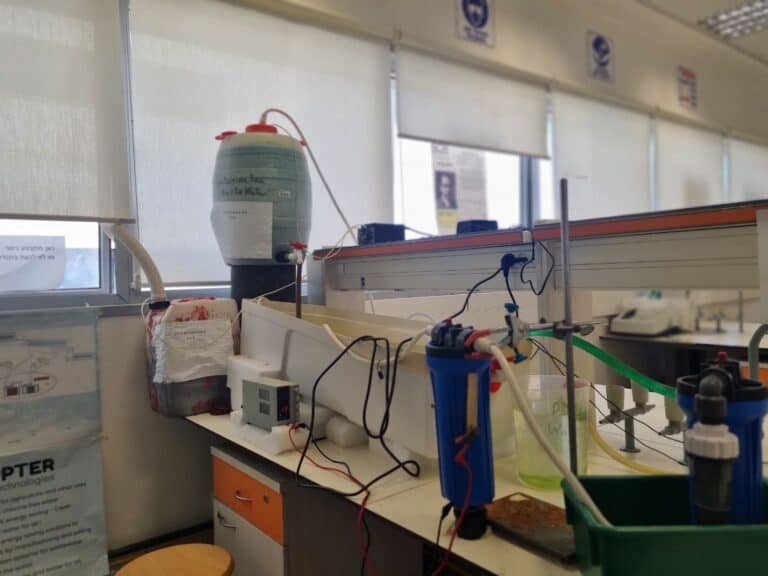
The lab even includes a Jacuzzi, where they test the latest technology. “In a 1,000-liter Jacuzzi there are one trillion bacteria,” says Kupitz, adding that Coppter Water technology kills those bacteria in under 10 minutes.
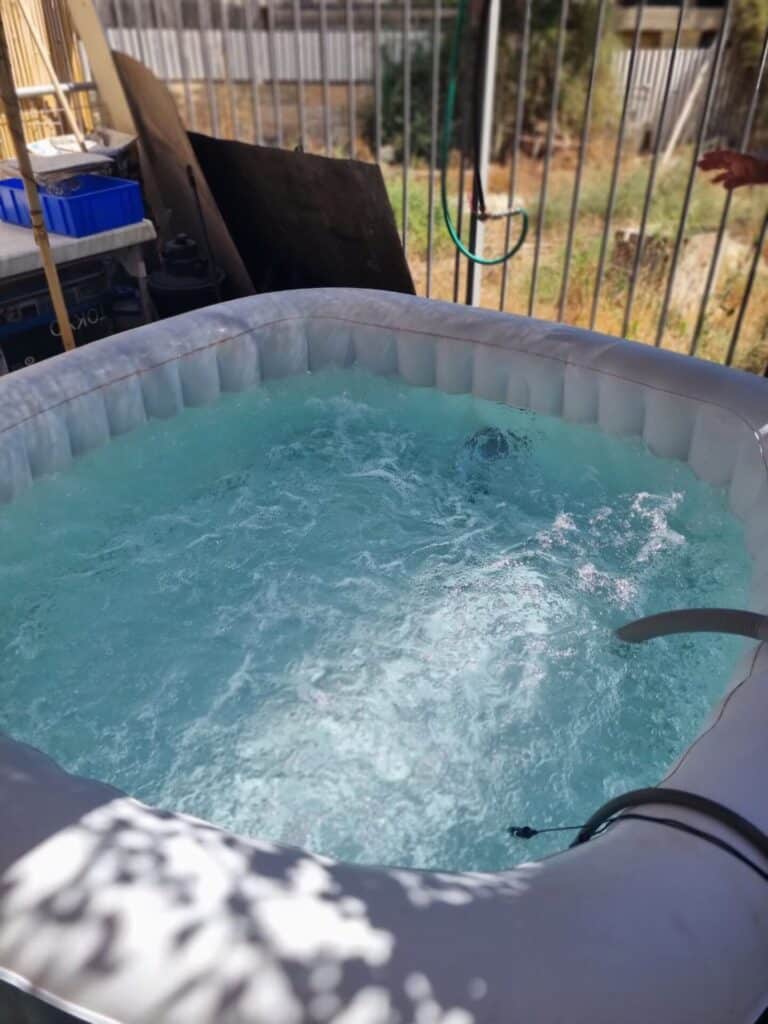
Although the disinfection of pools is what draws most of the interest in the company, Kupitz and Saphier emphasize that their technology’s ability to disinfect wastewater is what they consider their biggest breakthrough.
Treating wastewater
“Israel is a world leader in utilization of wastewater. Seventy percent of wastewater here is being repurposed,” says Kupitz.
“Back in the day, we would just discard the wastewater into the sea. With time, we understood that wastewater could be reused,” adds Saphier.
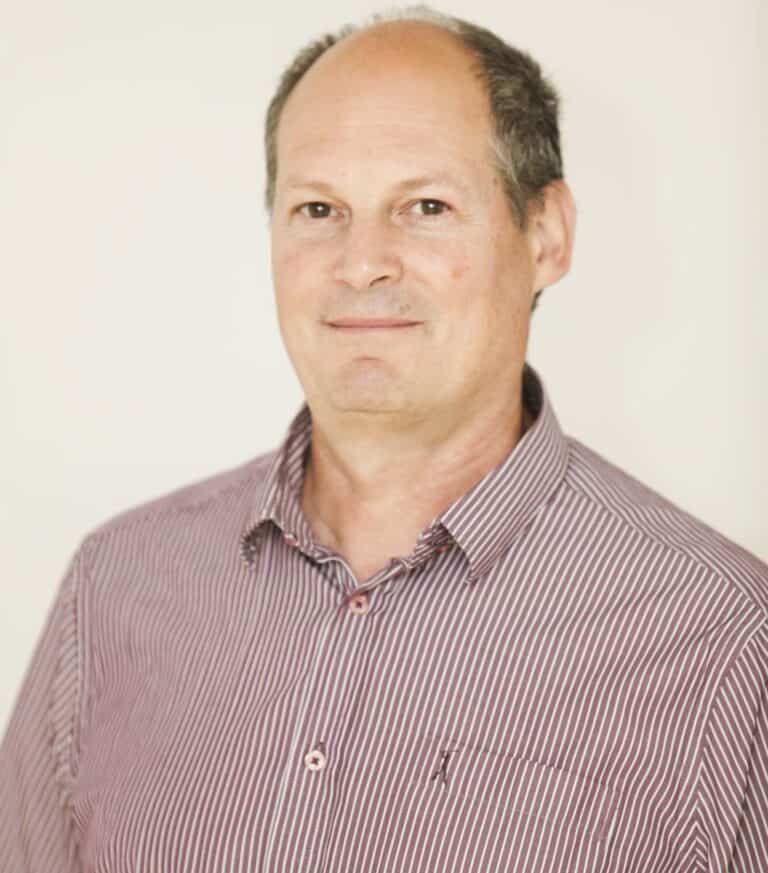
The problem is that currently, wastewater only undergoes basic disinfection and is suitable for specific uses, such as irrigation of urban gardening, plantations or cotton fields. To disinfect wastewater to the point where it has no dangerous germs at all is possible, but so far has not been cost-efficient. Coppter Water is planning to lower the costs significantly.
“The world’s population is only increasing. More people are moving to the cities; this results in a lot more wastewater than we had even 10 years ago. So, regulation is only increasing because authorities don’t want contaminated wastewater to harm the environment and disrupt the ecological balance,” says Kupitz.
“And don’t forget the good, old water shortage,” adds Saphier.
The two say if the company succeeds in the long run, there is no limit to finding applications for the Coppter method.
Saphier already has a patent to create antibiotic creams and is working with Soroka Medical Center in Beersheva on a potential herpes medication, all based on copper’s properties.
“It’s very difficult to get funding in the medical world, especially for antibiotics because their use is limited in time,” explains Kupitz.
“But it’s okay. We are patient,” Saphier laughs.
For more information click here.




